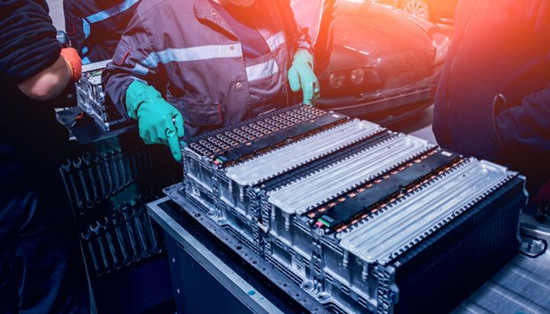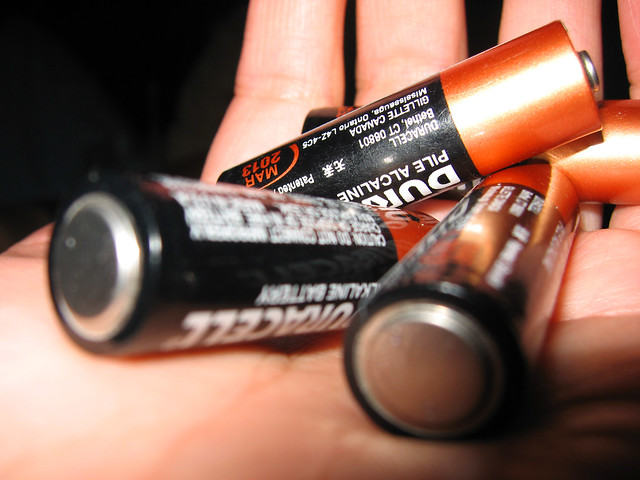Li Ion Computer Battery-What You Use Most Often
Sep 06, 2019 Pageview:1168
These days, laptops and computers can have either of three types of batteries, including Nickel-cadmium, nickel-metal hydride, and lithium-ion. Among these, it is the lithium-ion cells which are found in most devices these days.
The Capacity of Lithium-ion Batteries
The capacity of a battery influences its functionality. This capacity is measured by the rate of self-discharge, the power delivered per battery weight, and effective cycles. Self-discharge is based on the fact that even if stored, the batteries lose power. Effective cycles indicate the number of times that the battery can be charged before it loses its ability to hold power. The discharge of the battery is also affected by the temperature. The discharge rate is faster at higher temperatures.
Lithium-ion computer batteries are undoubtedly quite powerful. These cells do not have any memory effect. This implies that their capacity for charging fully is not lost if they are not drained completely. They lose the least power if left on the shelf. They have a good storage life owing to their discharge rate. However, they have to be used within a couple of years of being manufactured. Thus, even if you use a lithium battery which was charged a few months ago, it would still have sufficient charge left. This is quite suitable for those who own a number of laptops or computers.
However, there are some limitations to computer lithium-ion batteries as well. For one thing, their chemistry is volatile. Therefore, it is crucial that the lithium pack in your computer has its electronic protection circuit in place which would protect it against high-current, over-discharging, or overcharging. Lithium-ion batteries do not reseal. Every lithium-ion battery is provided with a charge indicator. When the button is pressed, a row of lights lit up, which indicates the charge.
Overcharging of Lithium-ion Computer Batteries
Most of the computer devices and laptops that you would come across are powered by lithium-ion batteries. Overcharging these cells is hardly a problem since their life span is not affected. Li-ion cells can be charged up to 500 times. Furthermore, these batteries are provided with an internal circuit which leads to the charging process being stopped when the charge is full. This control system makes sure that overcharging does not happen and the battery does not end up overheating. As a result, the cost of lithium-ion batteries is significantly higher.
There is one way owing to which these cells can overcharge, and this is malfunctioning of the charging system occurs. If this happens, the battery heats up while it is in the charger, thereby incurring damage. In case you do not intend on using your laptop for an extended period, the life of the lithium-ion battery can be increased if you store it with a charge of 50 percent. If a fully discharged battery is left for a long duration, it loses its charging capacity. If the battery is fully charged, it will discharge even when left unused and thus would end up losing its effectiveness. Therefore, it is advisable that the lithium-ion battery is discharged until it is almost out before you shut it down. The capacity of the battery will be diminished if it runs down completely.
Storage of Lithium-ion Battery
The batteries should be stored in cool, refrigerated places. Make sure that they are in a sealed plastic bag which avoids condensation. However, before using them, you will need to bring them up to room temperature. Lithium-ion batteries have to be charged when stored, or you would not be able to charge them to full capacity. Additionally, there is also a risk of the cells leaking and corroding. When the lithium-ion cells are used again after storage, they have to undergo multiple cycles of charging and discharging before the battery retains its optimal capacity.
Batteries these days are provided with extra circuits which tell you the best way to recharge them. As a result, the units are called smart cells. You might want to think about buying smart chargers to acquire a better understanding of this coding. The charger makes sure that the right type of voltage is applied automatically and is also responsible for deciding whether trickle charge should be used or not. Using the right type of charger can increase the life span of your lithium-ion computer battery significantly.
Can lithium-ion batteries catch fire?
Lithium-ion batteries are lightweight and compact. Yet, they hold a considerable charge and capable of withstanding constant discharge and recharge. On the whole, these cells are safe, and accidents are rare. However, occasionally, these batteries can explode and cause a fire which can pave the way for a dangerous situation.
The thing is, lithium batteries deliver high output while being lightweight. The partitions between the cells and the outer covering are thin and fragile. Thus, this partition can be punctured quite easily. A short circuit occurs when the battery is damaged. Lithium is quite reactive, and this spark might be enough to ignite it.
Another possible scenario is that the battery heats to thermal runaway point. The pressure is exerted on the cell by the heat of the contents, thus causing an explosion.
This risk of explosion or fire is increased when the battery is exposed to high temperature or when there is some problem in the internal component of the battery. Thus, there are some ways via which you can reduce risks of such accidents.
For one thing, make sure that the battery is not stored at high temperatures. Keeping the batteries in hot vehicles should be avoided. Refrain from covering your computer or laptop with a blanket.
Do not keep all the items that contain lithium-ion batteries together. It is common to have all the electronic items in a single bag when you are traveling. While you cannot avoid keeping the batteries in your carry-on, it is advisable to make sure that some space remains between these items.
Make sure that you do not overcharge the batteries. This can leave your cell vulnerable to damage and can increase the risk of accidents.
- Prev Article: Mailing Lithium Batteries Overseas
- Next Article: Li Ion Mobile Battery-What You Tend to Use Day and Night
Leave Message
Hottest Categories
-
Hottest Industry News
-
Latest Industry News











